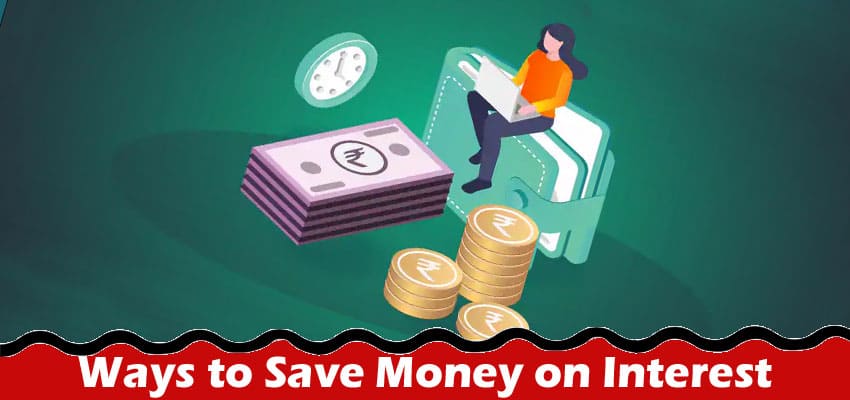Personal loans have become a common financial solution for various purposes, from consolidating high-interest debt to financing a significant expense. While personal loans can offer quick access to cash, your interest rate can significantly impact the overall cost of borrowing. This article explores four effective strategies to help you reduce the interest you pay on a personal loan and potentially save you money in the long run.
Improve Your Credit Score
If you’re looking to get a personal loan, your credit score plays a significant role in determining the interest rate of your loan. The higher your credit score is, the interest rate will be lower. Your credit history influences your credit score; it includes payment history, credit utilization, length of credit history, and other factors. Before applying for a personal loan, it’s important to check your credit report to ensure there are no errors that could be dragging down your score. For example, you can get a free copy of your credit report from each of the three major credit bureaus once a year at annualcreditreport.com. If you find errors on your credit report, dispute them with the credit bureau.
Shop Around for the Best Rate
Refrain from settling for the first personal loan offer you receive. Instead, shop around and compare rates from multiple lenders. Many online lenders offer personal loans, and you can easily compare rates and terms online. You can also check with your bank or credit union to see if they offer personal loans. When comparing rates, look at the APR, or annual percentage rate, which includes the interest rate and any fees associated with the loan. Also, be aware that applying for multiple loans can harm your credit score, so limit your applications to a short period.
Consider a Secured Loan
A secured personal loan is a loan that is backed by collateral, such as a car, home, or other valuable asset. Because the loan is secured, the interest rate is typically lower than an unsecured personal loan. However, if you default on the loan, the lender can seize your collateral to recover losses. Before getting a secured personal loan, ensure you can afford the payments and understand the risks involved. Also, be aware that the collateral you put up for the loan could be at risk if you miss payments or default.
Pay off Your Loan Early
Paying off your personal loan early can save you significant money on interest. However, some loans come with prepayment penalties, which means you’ll be charged a fee for paying off the loan before the end of the term. Be sure to check the terms of your loan before making extra payments or paying off the loan in full. If there’s no prepayment penalty, consider making extra payments or paying off the loan in full as soon as possible. You can also set up automatic payments to ensure you don’t miss any payments and to help you pay off the loan faster. By paying off your loan early, you’ll not only save money on interest, but you’ll also free up your cash flow for other expenses.
As mentioned earlier, improving your credit score is one of the best ways to get a lower interest rate on a personal loan. According to Lantern by SoFi, “Borrowers with the highest credit scores receive the best rates and terms, as well as the highest loan amounts.” So, if you plan to get a personal loan, take steps to improve your credit score first.
Additionally, shopping around for the best rate, considering a secured loan, and paying off your loan early can help you save interest money. Remember, taking out a personal loan is a big financial decision, so it’s essential to research and choose the best option for your needs.


